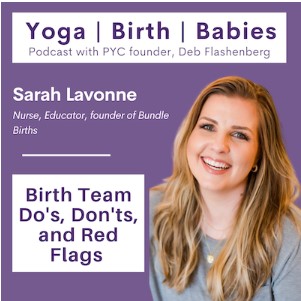Who you choose to be part of your birth care team will have a huge impact on your birthing experience and whether it is positive or unsatisfactory. A solid support team both before, during, and after childbirth can make all the difference when it comes to preparing for a positive and satisfying birth experience.
So whether it’s a doula, midwife, doctor, etc., the team you create will become your lifeline and will help support you and your needs throughout the entire labor and delivery process.
Navigation
What is a birth team?
A birth team is a group of selected people that assist and support an expectant parent during labor and delivery as well as sometimes the postpartum period too.
This team can include an obstetrician, midwife, nurse, birthing partner, doula, and other medical staff.
The purpose of the birth team is to ensure the safe and healthy delivery of your baby and provide comfort and support for the parent who is giving or has given birth.
How to choose your birth team
Choosing the right birth team for your birthing experience takes some careful consideration as well as thought into what kind of birth you want to have. When you understand what kind of birth you want, then you can think about who are the right people to assist your birth.
For example, if you decided that you wanted to have a home birth then you might opt for a midwife, doula, and birthing partner. However, if you decided that you wanted to give birth in a hospital then you might choose an obstetrician, midwife, nurse and of course your birthing partner too.

For more information on how to build a supportive birth team listen to this podcast episode here: Birth Team Do’s, Don’ts, and Red Flags with Sarah Lavonne RNC-OB, ICCE, CLEC
Who is part of a birth team?
Let’s go into a little more detail about the many birth care team roles and what each role offers.
Doctor/Midwife
The role of the doctor and midwife is to oversee the health and well being of the parent and child, and to manage their care. Midwives tend to be more hands-on in both the prenatal care and during the birth.
Traditional OBs are generally not heavily involved in most of the labor until the end when pushing starts. And while most midwives provide care for low-risk pregnant people, OBs often care for higher risk individuals or more complicated pregnancies (though not exclusively).
Both a midwife or an OBGYN are qualified and can be a fantastic option to have on your birth care team!
Nurse
When it comes to childbirth, the role of a nurse is rarely hands-on labor support, though some nurses are more versed in this than others, and they generally don’t spend a lot of time in your labor room with you.
During the (sometimes long) labor process, a nurse is essential at monitoring vitals of both parent and baby, administering medications, and providing overall support as labor progresses.
Additionally, nurses tend to support many birthing parents at once. In fact, depending on where you are giving birth, your nurse may either be covering your room 1:1, or could be covering up to three other rooms at the same time.
Nurses also have the heavy load of documenting everything, so there is a lot of paperwork they are responsible for.
Partner/Support Person
This is whoever the pregnant person chooses to support them. It could be a spouse, relative, or friend. This person will likely be with the birthing person throughout labor and birth, and is there to offer emotional and physical support.
The partner’s ultimate role is to help the birthing person feel comfortable and empowered during the childbirth process. This can look like physical touch (rubbing the back, helping change positions, etc.), emotional support, help with relaxation techniques, etc.—whatever the pregnant person needs.
The partner can make a huge difference in whether childbirth is a positive experience or not.
Doula
A doula is a non-medical birth attendant who offers physical, emotional, and informational support during pregnancy, childbirth, and the postpartum period. Doulas come with a vast knowledge of birth, coping skills, and relaxation techniques.
A doula can be an advocate for the preferences of the birthing person, but should never make decisions on behalf of the parent. In the end, the doula should provide a nurturing role and help to ensure that the parent’s voice is heard through the childbirth experience.
This is where self advocacy becomes important, which is the idea that a pregnant person should have the right to advocate their own desires and wishes during labor and be listened to by their birth team.
Let’s get more into why this is important in having a positive birth experience.
Self Advocacy: why your voice matters
In a podcast interview I conducted with Penny Simkin, co-founder of DONA International and PATTCh (Prevention and Treatment of Traumatic Childbirth), she stated, “It’s not always the events of the birth the mom remembers but how she was made to feel.”
If your desires and wishes were not heard and you felt neglected, you have a higher chance of experiencing birth trauma and postpartum depression.
Studies support “patient led care,” and having personal control during childbirth has been shown to lead to a more satisfied birth experience, even when birth outcomes differ from what the parents had originally envisioned.
Part of that “patient led care” means being a part of the decision-making process. You would think having the birthing person’s preferences considered would be standard care. But not all care providers or hospitals practice this way.
It’s important to learn how to advocate for yourself and how to get your team to advocate on your behalf when you are in the middle of labor.
Here’s the basic 2-step process to help you self-advocate:
- Educate yourself and figure out what is important to you about your upcoming birth. Take classes and read reputable and science-backed literature, so that you can go into this process with as much knowledge as you can.
- Talk with your care provider about your preferences so that you are on the same page. Keep in mind, your provider may be part of a large OB practice, so the doctor you see may or may not also be the doctor supporting your delivery. Or you may be in a situation where you have little choice about the doctor who will be delivering your baby. In cases like this, it’s especially important for your team to know your birth preferences so they can prompt you to ask for more time and space. I sometimes call this holding-space process “circling the wagons,” where the team emotionally encircles the birthing person, so the birth can unfold without them feeling coerced.
If you may also find this podcast on how Hospital Policy Can Affect Your Birth with Melissa Chappell of interest.

The bottom line is that advocating for yourself does not mean that you are neglecting the guidance of your care provider. There may be situations that arise where you need to defer to your care provider’s medical assessment and capabilities.
However, there are also times when there is room for discussion. This is where the knowledge, education, and participation in decision making can lead to a sense of empowerment and satisfaction!
Prenatal Yoga Center in NYC can support your pregnancy journey
At Prenatal Yoga Center, we provide classes, events, and workshops to help pregnant individuals to feel empowered for their upcoming birth!
If you are interested in learning more about how you and your growing family can receive support through your pregnancy, childbirth, and postpartum period, contact us or book a class, workshop, or event today!
FAQs
What is an example of the support team “circling the wagons” around the birthing person?
“Circling the wagons” is where the parent’s birth team emotionally encircles the birthing person to hold the space for their birth to unfold without feeling coerced into a quick decision or decline of the offering.
An example of this would be.
Doctor or nurse. “We are just going to start this IV line of pitocin to help increase your contractions.”
Support team can say to the laboring person, “How do you feel about that? Do you have any questions? Would you like some time to think about it?”
Another example can be…
Doctor, “I’d like to break your water now.”
Support team or birthing person, “What would happen if we wait a bit longer?”
This kind of approach of advocacy is non-confrontational, since arguing would have a negative impact on the process of giving birth. Instead, this approach moves the focus and decision-making back to the birthing person.
Also, asking for more time highlights whether or not the proposed intervention is time sensitive and medically necessary. If someone is asking for more time, and the baby or parent is experiencing medical complications, the answer will be “no”.
How can prenatal yoga play a role in finding the support I need?
In prenatal yoga, we encourage students to play an active role in learning about their body and choosing what they want to do. I often describe class as a buffet. I will offer these options and modifications, and you choose what is right for you.
In our yoga practice, we also introduce many different types of coping skills, breathing techniques, and relaxation skills. These skills are then integrated into class by utilizing them when poses are challenging.
The students can start to notice what coping skills they continue to gravitate towards, and share this with their support team. So when in labor, the support team can remind the birthing person of these different tools.
Additional Resources
Education is important and the sources you get that education from need to be factual and reliable. Here are just a few of my favorite resources:
- Yoga | Birth | Babies Podcast: Ok yes, this is my podcast, but I have had the honor and pleasure of interviewing some of the world leaders in pregnancy, birth, breastfeeding, and early parenthood.
- Evidence Based Birth: Their mission “is to help birth workers build the evidence based knowledge, skills, and power they need to protect families’ abilities to give birth with empowerment.”
- Lamaze International: Their goal is that they “want all parents to feel confident, supported and powerful as they ask questions, make decisions, and navigate their path through pregnancy, birth and parenthood.”
- ACOG (The American College of Obstetrics and Gynecology):

